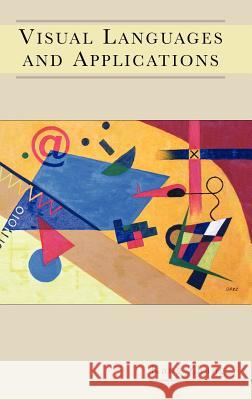Visual Languages and Applications » książka
Visual Languages and Applications
ISBN-13: 9780387298139 / Angielski / Twarda / 2007 / 246 str.
Visual Languages and Applications
ISBN-13: 9780387298139 / Angielski / Twarda / 2007 / 246 str.
(netto: 423,68 VAT: 5%)
Najniższa cena z 30 dni: 424,07
ok. 16-18 dni roboczych.
Darmowa dostawa!
Visual languages have long been lit pursuitofeffective communication 00- tween human and machine. Today, they are suecessfully employed for e: nd user progmmming, modeliog, rapid prototypmg, and design activities by people ofmany disciplines including arehitects, artists, children, engi neers, and scientists. Furthermore. with rapid advances ofthe Internet and Web technology, human human communication through the Web or eleo- tronie mobile deviees is becoming more and moreprevalent This manuscript provides a comprehensive introduetion to diagmmmatiooI visual programming languages and the technologyofautomatie genemtion ofsnch languages. It covers a broad rangeofcontents from the underlying theoryofgraph grammars to the applications in various domains. Thecon tents were ex: l: l: aeted from the papers that my Ph. D. students and I have published in the last 10 years. and are updated and organized in a coherent fashion. The manuseript gives an in. -depth treatmentof all the topic areas. Pointers to related work and further readings are also faeilitated at the end ofeverychapterexeeptChapter 9. Rather than describing how to program visually, the manuscript discusses what are visual programming languages, and how sooh languages and their underlying foundations can be usefully applied to other fields incomputer science that need graphs as the p: rimary meansofrepresentation. Assuming the basic knowledge of computer programming and compiler co: nstruetion, the manuscript can be used as a textbook for senior orgradu ate computer science classes on visual languages, or a reference book for programming language classes, practitioners, and researchers inthe related field. The manuscript cannot be completed without the helps of many people.











